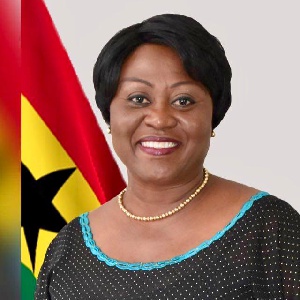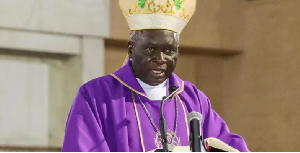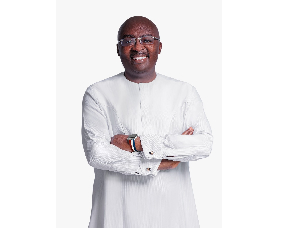The President of the United Nations General Assembly, Her Excellency Maria Fernanda Espinoza Garces has appointed Her Excellency Martha Ama Akyaa Pobee, Ghana's Permanent Representative and Ambassador to the United Nations and her Canadian counterpart, His Excellency Marc-Andre Blanchard to conduct consultations for the convening of the High-Level Dialogue on Financing for Development.
The high-level event considered critical for the implementation of the Sustainable Development Goals and the Addis Ababa Action Agenda is scheduled to take place in September 2019, when Heads of State and Government meet in New York for the 74t h Session of the General Assembly.
The Addis Ababa Action Agenda
The Addis Ababa Action Agenda adopted in 2015 a few months prior to the adoption of the SDGs agreed on the need to mobilize public finance and to set appropriate public and regulatory frameworks to unlock private finance, trade opportunities and technological development as well as incentivize changes in consumption, production and investment patterns for sustainable development.
It provided a new global guideline for financing sustainable development in support of the implementation of the 2030 Agenda. It also contained commitments to align all resource flows and policies with economic, social and environmental priorities, advocating a holistic financing framework for further actions by governments, international organizations, the business sector, civil society and philanthropists.
Negotiated on the basis of outcomes of financing for development conferences held in Monterrey, Mexico in 2002 and Doha, Qatar in 2012, the Addis Ababa Action Agenda reaffirmed that domestic policies must be supported by enabling international environment.
The President of the 73r d Session of the United Nations General Assembly, four years after Addis Ababa Action Agenda adoption, has appointed Ghana and Canada’s Permanent Representatives to conduct inclusive and transparent consultations with UN member states on the substantive work, including possible outcomes of the September 2019 high-level dialogue and review of financing for development.
The Ambassadors have been tasked to assess the progress of the Addis Ababa Action Agenda, identify obstacles and challenges to the implementation of the financing for development outcomes, delivery of the means of implementation and address new emerging topics of relevance to the implementation of the Agenda as the need arises.
Some of the critical issues that are expected to come up during the review process include how to address the financing gap for the SDGs, debt management and sustainability, capacity-building in developing countries, domestic resource mobilization and questions relating to illicit financial flows, transactional cost of remittances, climate financing, resilience-building, addressing special situation of SIDS, LDCs, MICs etc.
The impact of extreme natural disasters for instance, is equivalent to a global $520 billion loss in annual consumption, and forces some 26 million people into poverty each year, a new report from the World Bank and the Global Facility for Disaster Reduction and Recovery (GFDRR) has revealed.
It is broadly accepted that getting financing right will be critical to meet the SDGs by 2030. There is no shortage of capital in the global economy. The total stock of global financial assets has been estimated at close to $300 trillion. However, the global financial system is not channeling those vast sums effectively towards investments for sustainable development and achieving the SDGs.
For example, international institutional investors such as sovereign wealth funds and pension funds hold an estimated US$115 trillion in assets under management. This is a significant potential source of finance for sustainable development. Yet, when we look at the portfolios, for example, of the largest pension funds, less than three percent is invested in infrastructure and even lower shares in developing countries.
Reorienting even a fraction of these investments would accelerate sustainable development. By some estimates, the official sector and asset managers currently hold as much as $10 trillion in negative yielding assets.
Governments have a key role to play to create incentives to align larger shares of private finance with sustainable development objectives through direct financial interventions such as subsidies or guarantees as well as strengthened policies and institutional, legal and regulatory frameworks.
This was revealed by Achim Steiner, Administrator of UNDP in his keynote speech at the High-Level Conference on Financing for Development and the means of Implementation of the 2030 Agenda for Sustainable Development in Doha, Qatar, on December 17, 2017.
It is worthy to mention that, President Akufo-Addo’s role as Co-Chair of the Eminent Group of Sustainable Development Goals Advocates and his government’s economic and social development policies, which are aligned to the SDGs has contributed immensely to Ghana’s good standing and image as well as excellent record here at the UN.
Flagship initiatives including Free Secondary High School, aggressive steps to industrialize the economy through the modernization and transformation of the agric sector, and economic growth - rated as one of the fastest in the world – no doubt contributed to the confidence reposed in Ghana’s Permanent Representative as co-facilitator in this important process.
General News of Thursday, 21 February 2019
Source: Frederick Ameyaw

















